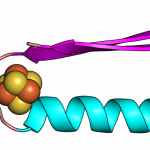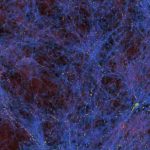Scientists Have Discovered the Origins of the Building Blocks of Life0
- From Around the Web, Science & Technology
- March 18, 2020
Rutgers researchers retraced the evolution of enzymes over billions of years

Rutgers researchers retraced the evolution of enzymes over billions of years

This kind of algorithm could be used in testing air quality or diagnosing medical conditions

Scientists one step closer to understanding the mystery of matter in the universe

The researchers unlocked the solution to the quantum puzzle dating back to 1961.

What would you do if you were immortal?

Process that leads three-dimensional cultures to form in low-gravity is still not understood

Nasa’s Veggie system will enable astronauts to safely grow nutritious fresh food

Dark matter is the mysterious substance that makes up roughly a quarter of the Universe. There is strong indirect evidence for its existence from measurements of cosmic primordial radiation, anomalies in the radial dependence of galactic rotational curves and gravitational lensing. Despite its apparently pivotal role in the Universe the physical origin of dark matter remains unknown. Scientists suspect that it is made of unseen particles that neither reflect nor absorb light, but are able to exert gravity. Two theoretical physicists at the University of York, UK, have a new candidate: a recently-discovered bosonic particle, the d*(2380) hexaquark.

The use of pesticides has proven to affect the environment in a negative way.